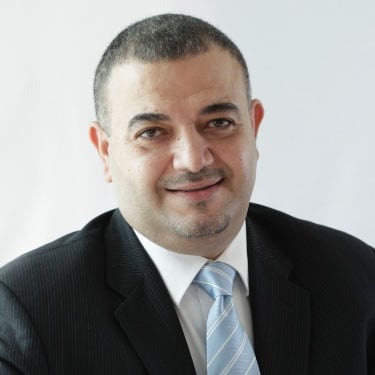The future of diversity in the Kingdom
At PwC, we respect and value differences. We know that when people from different backgrounds and with different points of view work together, we create the most value – for our clients, our people and society.
On the occasion of International Women’s Day, I want to re-emphasize the importance of encouraging inclusion in our workforce and that starts with supporting our female colleagues. In the area of gender diversity, PwC firms globally have increased female partner admissions from 23% in 2013 to 30% in 2018. Additionally, in 2017, we reached gender balance on our Global Leadership Team for the first time, however we still have much to do to reach gender balance across our Network Leadership Team and Strategy Council.
On the same path, the Kingdom of Saudi Arabia aims to increase women’s participation in the labor market from 22% to 30% in 2030, which will contribute to an increase of 3% of non-oil GDP. As the Kingdom implements Vision 2030, it is sending a powerful message that enabling and empowering women to fully participate in the economy is essential for transformation. The National Transformation Program 2020 contains 36 strategic objectives supporting empowerment, independence and self-reliance of Saudi women, proving the Kingdom’s support to women’s employment and encouraging females to change the future of women in the Kingdom. As a firm with deep roots in Saudi, having operated in the Kingdom for over 4 decades with 41% of our staff comprising of Saudi nationals, and 21% females (of which 78% are Saudi); we are committed to playing our part and supporting that transformation in more ways than one.
Last month, we witnessed the appointment of our first Saudi female envoy with the appointment of Princess Reema bint Bandar Al-Saud, a leading entrepreneur and philanthropist, as ambassador of Saudi Arabia to the US. 2018 was a landmark year for women in the Kingdom, as we rejoiced women getting behind the wheel, a turning point within and beyond the Kingdom, and an emblem of a new era; an era which extends past women simply being allowed to drive, to being leaders and drivers of positive change. And in 2017, Sarah Al-Suhaimi, was the first Saudi woman to chair the Saudi-Arabian stock exchange (Tadawul), the largest stock market in the Middle East. She is leading comprehensive efforts to further connect the Saudi capital markets with the global system, in line with Vision 2030.
Recently, we were pleased to host the first of its kind, PwC women’s workshop in the region, "Awareness to Action". Our event featured female role models including our very own Hala Kudwah - PwC KSA Financial Services Leader, PwC’s first-ever Saudi Female Partner; and Lama Rmeily, PwC Deals Director and our Saudi Women in Business Leader; as well as a host of our fellow female leaders and colleagues from around the region who all came to show their support. Additionally, prioritising the value and importance of a gender balanced workplace, the firm recognised the need, and appointed a Middle East Diversity & Inclusion Leader.
Four years ago, PwC was one of the first 10 businesses to become a HeForShe IMPACT champion. A programme run by UN Women, HeForShe aims to mobilise one billion men and boys in support of gender equality. Since then, we have taken action to engage all of our people. To date, over 46,500 PwC men have made the HeForShe pledge.
The women of our firm are crucial to our success and it is both a moral and economic imperative for all of us - men and women - to play our part in ensuring greater gender parity in our countries, offices and our homes.

Riyadh Al Najjar
Contact us








